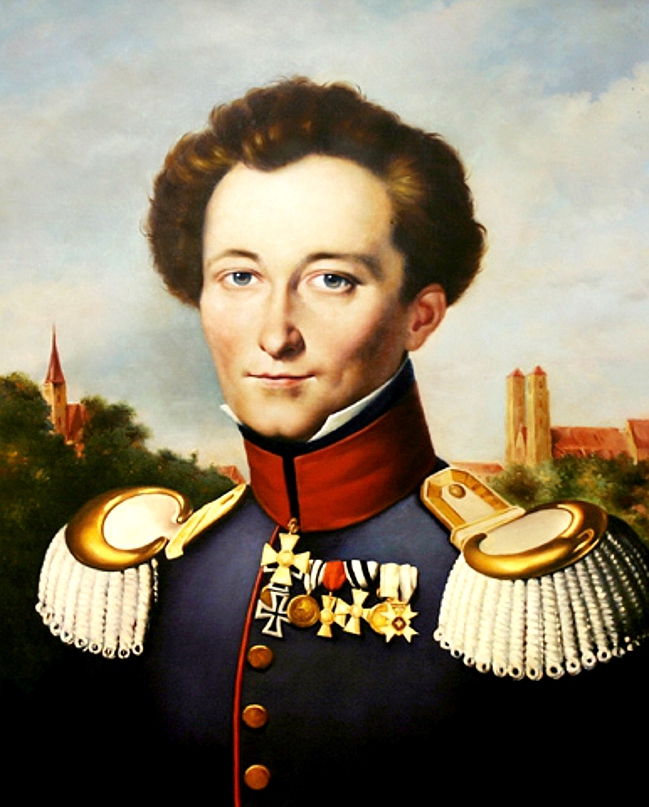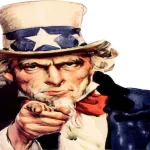IDR Blog
Coup D’oeil and Intuitive Decision Making

The more you read Clausewitz the more enamoured you get with his ideas. Coup d’oeil is one such idea which defines a great leader. Napoleon was the contrivable muse to which ‘On War’ may be dedicated to. This strange and relatively obscure French expression, which means literally ‘stroke of the eye’, when incorporated in military lexicon was very tactical in nature and alluded to the ability of a commander to see the ground and be able to make sense of it in a flash, today it might be better translated as at-a-glance leadership. Truly exceptional leaders have the ability to take in the whole of a complicated situation, do a fast / rapid analysis and then can express it in simpler, clearer terms and develop the appropriate action to take. They seem to be able to distill complex scenarios faster and get better results and achieve long term success.
For Clausewitz, coup d’oeil is “the rapid discovery of a truth which to the ordinary mind is either not visible at all or only becomes so after long examination and reflection.”[1] After you see what to do, you need the resolve to execute the plan or the decision which the leader has arrived at despite the fog of war. For Clausewitz resolution means “removing the torments of doubt when there are no sufficient motives for guidance.”[2] Clausewitz further elaborates upon the content of the coup d’oeil itself. In theory, an infinite number of possible end states and courses of action (CoAs) exist in any situation a possible paralysis by analysis situation. Clausewitz states “Strategy deduces only from experience the ends and means to be examined; it therefore turns to experience, and directs its attention on those combinations which military history can furnish.”[3] Note that “experience” here means not only the commander’s experience, but what he learnt from other campaigns of great captains of warfare. The US Army has coined a new term for coup d’oeil; strategic intuition. “The selective projection of past elements into the future in a new combination as a CoA that might or might not fit your previous goals, with the personal commitment to follow through and work out the details along the way.”[4] In Mar 2020, in an Issue Brief published by CLAWS, I had debated as to what the Indian Army officer should be in thought, Jominian or Clausewitzian[5]. However the last few months in my present tour of duty have confirmed my hypothesis that as we rise in military hierarchy the transition from Jomini’s calculation based methodology to a more intuitive process by Senior Commanders is a must.
A generally accepted characteristic of intuiting is the lack of rational thinking and is non-conscious. An intuitive realisation, for example an intuition to take a decision and also the timing of the said decision, cannot be generated deliberately, although the intuitive thought often comes while ruminating over a problem where merging of non-conscious information processing and experiential baggage leads to intuiting and defies control. Moreover, even if intuiting did follow certain rules, those could not be discovered and type casted as the permutations and combinations would be so very personalized and varied. My ring side view of the present situation in Eastern Ladakh and the decision maker’s intuitive process defied any logic which one would have encompassed the process.
Intuiting is considered quicker when compared to analytic information processing. Based on the assumption that intuitive thinking preceded analytical thinking, the capability to process information faster helped react to changes in the environment and stay ahead in the OODA loop. In addition, missing information that would slow an analytic process does not hamper the speed of intuitive decision making. It would rather result in a loss of accuracy. Patton was a striking example of strategic intuition by applying examples from history through coup d’oeil. “Military operations are uncertain and unpredictable. Any plan is a framework from which to adapt, not a script to be followed to the letter.”[6] Patton always used strategic intuition to handle uncertainty and adaptability.
There is some common understanding in the literature on decision-making that intuiting relates a variety of different exogenous information, and matches them with experiential knowledge. This approach defines knowledge as cognitive patterns stored in memory. These stored patterns evolve when individuals process exogenous stimuli non-consciously by developing cognitive procedures. Intuiting is the comparison of stored cognitive patterns with patterns of environmental stimuli using cognitive procedures. Because the process of comparing is non-conscious, information cannot be selected and processed in piecemeal fashion. Heuristics[7] in decision-making can result in cognitive biases that impact and affect the decision accuracy. However the level of experience (e.g. novice, expert) is important for the availability of intuition, and determines whether a decision achieves the intended effect. This may just be the clarion call to look for specialists with adequate in-depth cognitive data base to draw on during intuitive decision making. It is clear from the little research I have done so far that coup d’oeil doesn’t feed on ignorance.
Intuiting is effected by emotion only with respect to which cognition patterns are stored and retrieved. Intuiting is therefore not a result of feeling, and intuition is not an emotion. In summary, intuiting is the non-conscious fast, and linked to knowledge and emotion. It involves processing of complex information, and allows decision makers to balance subtle differences in the decision-relevance of information.
The dissimilarity between conscious thinking and non-conscious thinking is paramount in defining the difference between rational and intuitive strategic decision-making. Analysis incorporates a deliberately structured approach to finding a solution. This solution process is consciously chosen to increase the probability for an accurate decision. The relevance of information is evaluated based on reasoning. A thorough analysis takes time, but may reduce the exposure to cognitive biases. Instincts are “hardwired”, autonomous responses to environmental stimuli whereas insight is frequently described as an “eureka” effect, when a logical connection between two seemingly unrelated information is made. Insight might be preceded and induces by a non-conscious intuition. The so called “gut feeling” or coup d’oeil refers to the emotional aspect of intuitive decision making that has been described above.
The divide between analysis and intuition; Jomini and Clausewtiz reflect an outmoded view of the human mind that science no longer supports. Recent advances in how the mind works have overturned the old idea that analysis and intuition are two separate functions that take place in two different parts of the brain. In the new view, analysis and intuition are so intertwined that it is impossible to sort them out. There is no good analysis without intuition, and no good intuition without analysis. They go together in all situations. Some scientists call the new model of the brain “intelligent memory,”[8] where analysis puts elements into your brain and intuition pulls them out and combines them into action. Army officers in action, tend to comment, “That’s written in SOP and that is what we do.” Good commanders must use strategic intuition or coup d’oeil. They must treat SOPs and manuals only as guides, and adapt procedures as they see fit. Coup d’oeil is really a single stop shop for what Army leaders must always do. It also implies that the Clausewitz’ coup d’oeil process can be taught, practiced and used. To understand whether you are going in the right direction with your own leadership, ask the following questions:-
- What must you keep doing to be a good leader?
- What must you stop doing to be a good leader?
- What must you start doing to be a good leader?
- What must you think of doing to be a good leader?
The majority of leaders are currently developed via on-the-job experiences, training and mentoring; while these are all still important, leaders are no longer developing fast enough or in the right ways to match the VUCA conflict scenario. In the emerging future views of leadership, leaders do not have influence simply because they are ‘bosses’. Rather, leaders are people who have the coup d’oeil as the keys to our future success and future survival as a relevant arm of CNP.
Endnotes
[1] Carl Clausewitz, On War, London, UK: Penguin, 1968 (1832), pg 141.
[2] Ibid pg 142
[3] Ibid pg 195.
[4] William Duggan Coup D’oeil: Strategic Intuition In Army Planning, 2005, accessed on 04 Dec 2020, https://publications.armywarcollege.edu/pubs/1734.pdf , pg 4.
[5]https://www.claws.in/publication/clausewitz-and-jomini-contrast-of-dogmas-combined-in-military-decision-making-process-mdmp/ accessed on 03 Dec 2020.
[6] Carlo D’Este, Patton: A Genius for War. New York: HarperCollins, pg 35 and also Army Planning and Orders Production FM-05 of US Army.
[7] A heuristic technique, or a heuristic, is any approach to problem solving or self-discovery that employs a practical method that is not guaranteed to be optimal, perfect, or rational, but is nevertheless sufficient for reaching an immediate, short-term goal or approximation.
[8] Barry Gordon,Lisa Berger, Intelligent Memory: Improve the Memory that Makes You Smarter, Viking Adult, September 2003, pg 08.
Courtesy: https://www.claws.in/coup-doeil-and-intuitive-decision-making/




